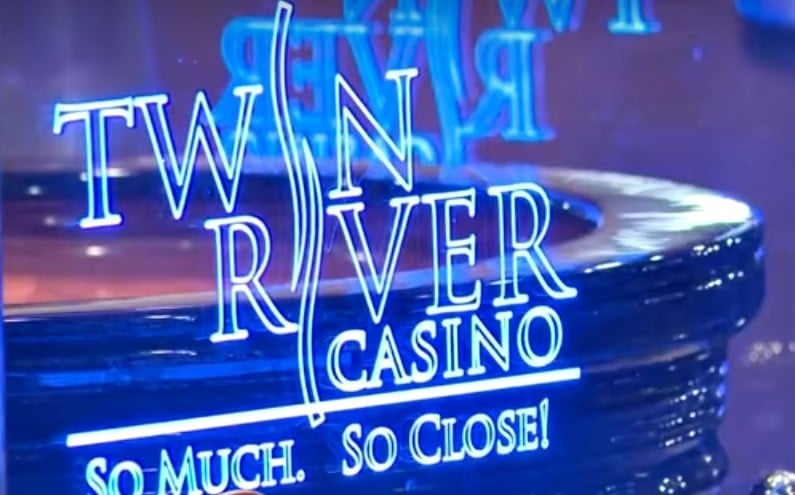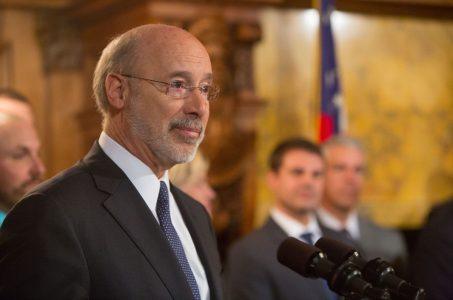Twin River Begs Rhode Island for More Marketing Dollars to Blunt Encore Boston Harbor Competition
Posted on: June 3, 2019, 03:20h.
Last updated on: June 3, 2019, 03:20h.
With the expected opening of Encore Boston Harbor later this month, the balance of power in the crowded New England casino market could swing away from Connecticut and Rhode Island and towards Massachusetts.

Rhode Island’s Twin River Worldwide, owner of the state’s two casinos, believes increased marketing spend is needed to cancel the noise from Massachusetts, and it needs Rhode Island’s help to share the costs.
A bill before the Rhode Island legislature would allow the company to expand the promotional push for its Twin River Tiverton casino, which opened last year, by increasing the amount it can claim back from the state through its marketing spend.
Currently, Twin River receives around $6 million back from revenues that would otherwise be earmarked for public coffers in return for promoting its own casinos, but most of this is for its Lincoln property, according to The Providence Journal.
Slots Hit
The bill — introduced May 23 by Senators Maryellen Goodwin (D-24th) and Dominick Ruggerio (D-4th) – would allow Twin River to recoup a maximum $1.4 million — an increase of about $860,000 per year — on the Tiverton property, provided it spent around $2.9 million of its own money on promoting it.
At a Senate committee hearing on Monday, Twin River representatives argued that failure to counter the new competitive threat in Massachusetts would severely damage money flowing to Rhode Island from taxes on slots, which is currently the third largest source of revenue in the state, behind only income tax and sales tax.
We have to spend proportionately to the [slots revenues] at the location so the customers stay loyal to the location,” said Twin River’s Adi Dhandhania, as reported by the PJ. “What we are estimating is that if we don’t spend proportionate dollars like we do in Lincoln, we will see a 5 to 10 percent hit in [slots] numbers, and the state has significant tax on income.”
A 5 percent to 10 percent hit would translate into a loss of between $3 million to $6 million for the state, he added.
Bulletproof Plan
Separately, Twin River is also petitioning the state to lift the cap on VIP credit from $50,000 to $100,000 to bring it more in line with other jurisdictions.
PJ reports the company also wants an exemption from a state law that requires any establishment that cashes checks to have bulletproof glass on teller windows, on the basis that no one has tried to rob a window at Twin River at gunpoint for over ten years — although without the bulletproof glass they might be more tempted to try.
One area where Rhode Island’s casinos do have an advantage over the rest of New England — albeit probably a temporary one — is that they offer sports betting. The first sports books launched in the Twin River properties late last year, although numbers have been disappointing so far, probably because lawmakers misunderstood a study of the market’s potential.
Meanwhile, state Republicans have filed a lawsuit that seeks to challenge the constitutionality of all licensed sports betting in the state on the grounds that the question of legalization was never put to voters via public referendum.
Gov. Gina Raimondo’s office argues that, as a form of casino gaming, voters approved sports wagering when they opted to legalize casinos in 2012.
Related News Articles
Most Popular
LOST VEGAS: The Foster Brooks Robot at MGM Grand
Bally’s Sets Date for Tropicana Las Vegas Implosion & Party
Most Commented
-
VEGAS MYTHS RE-BUSTED: You Don’t Have to Pay Resort Fees
— August 2, 2024 — 16 Comments -
VEGAS MYTHS RE-BUSTED: Elvis Was a Straight-Up Racist
— August 9, 2024 — 11 Comments -
ANTI-SOCIAL BEHAVIOR: Vegas Casino Buffet Stunt in Poor Taste Goes Viral
— August 16, 2024 — 7 Comments -
VEGAS MYTHS RE-BUSTED: The Strip Tried Appealing to Families and Failed
— August 23, 2024 — 7 Comments
















No comments yet